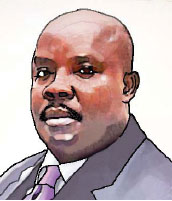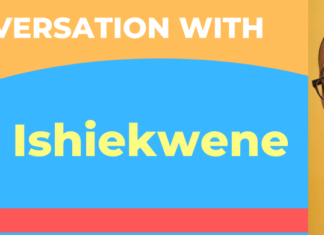Nigerians may have succeeded in replacing the Peoples Democratic Party (PDP) with the All Progressives Congress (APC), nearly one year ago. By that, it may be right to argue that there is a new political order in the land.
But is there any significant change? No, there is none, really. Rather, it is the same antics, the same strategies and, in some instances, the same players, despite pretensions to the contrary.
This is why the rash increase in the pump price of Premium Motor Spirit (PMS) by the Federal Government, last week, should not come to any discerning Nigerian as a surprise. It, indeed, followed the same pattern by the administrations before the current one.
As in the past, the agenda came with an artificial scarcity that was deliberately injected into the system. In-between was a staccato of ill-digested and contrived official excuses by state officials; occasional threats of dealing with marketers for hoarding; the usual claim of unscrupulous elements diverting products to neighbouring countries; unleashing rented commentators on the people on why the so-called subsidy on the products had been at the base of the nation’s underdevelopment. Then the final announcement after the people must have been exasperated.
From 1973 when the former military head of state, General Yakubu Gowon, initiated the fuel price hike from six kobo to 8.45 kobo, till the last Goodluck Jonathan administration that raised the price from N65 to N141 on January 1, 2012 before industrial action by organised labour forced it to bring down the rate to N97 on January 17, the story has been the same.
In what has become an orchestra of sorts, the increase has always been explained on the need to ensure product availability, competitive pricing and need to fix the nation’s dilapidating infrastructure.
The price hike of last week by the Muhammadu Buhari administration did not depart from the odious route. While the Minister of State (Petroleum), Ibe Kachikwu, struggled to explain the increase, it was apparent that he was on a tough task. He was, in fact, executing a brief that any one worth his principles would find humiliating.
It was, in a way, akin to one going back to a vomit. Here is a government that its principal officers had, during the build-up to 2015 general election, pledged stability in the pump price of petrol.
Even some supporters that were particularly excited by the candidacy of Buhari had taken the beat further by announcing that if the retired General came to power, the price for a litre of PMS would crash to N40.
Tam David-West, the virology professor, who had stuck out his neck on this, will now be finding it hard to grapple with what is staring him at the face.
But he is not alone. We have all been conned by the smart alecs we elected as our leaders. What we are experiencing is expected in a system that plays politics without the people-content. It is that which manifests in an entity where people attain political offices not essentially by merit or convincing party manifesto, but by petty sentiments of religion and ethnicity.
Is it not amazing, for instance, that months before the November presidential election in the United States of America, the aspirants are literally being scrutinised to their pants to find out how physically and mentally prepared they are for the high office.
Ours is a different ball game. We always take a leap in the dark. Charles Soludo, professor of economics and former Central Bank of Nigeria (CBN) governor, can thus be said to have seen farther than many, when, in the course of the campaigns last year, he had alerted Nigerians on some rough times ahead, regardless of who emerged the winner between the then President Jonathan and Buhari.
He had predicted that none of the two would be able to deliver on the fantastic promises they were making on the economy, warning that if oil prices remained below $60, there would be difficult times ahead.
Soludo said: “Let me admit that the two main parties talk around the major development challenges – corruption, insecurity, economy (unemployment/poverty, power, infrastructure, health and education among others). However, it is my considered view that none of them has any credible agenda to deal with the issues, especially within the context of the evolving global economy and Nigeria’s broken public finance.
“A plan without the dollar or naira signs to it is nothing but a wish-list. They are not telling us how much each of their promises will cost and where they will get the money. None talks about the broken or near bankrupt public finance and the strategy to fix it.”
This is, sadly, the challenge before us.
But how could Nigerians know the thinking of their eventual president, when the basic demand of subjecting the candidates to mere television debates is often considered an affront in some quarters? That is why Nigerians do not, in the real sense, get to know who is presented before them at elections.
Therefore, the parties and their flag-bearers cash in on this to ride roughshod on the people, churning out promises that they hardly give a thought on.
If this is not the case, how would one explain a situation where APC, which had sold to Nigerians the dubious impression of progressive change agency, could not, since after coming to power, put up any single policy initiative that can be said to be salutary in formulation and implementation?
Granted that it may be too early to write off the party and its administration, since it still has three years to put things in place. But if the current actions of the party and its elected officials are to offer the compass for the journey ahead, the future is, indeed, bleak for the country. In that case, the pains Nigerians will obviously be going through on account of the senseless fuel price hike will just mark the beginning of more traumatic days ahead.

- Advertisement -
- Advertisement -
Must Read
What’s in a book? You’ll never know, until…
What’s in a book? You’ll never know, until…
Writing for Media and Monetising It










